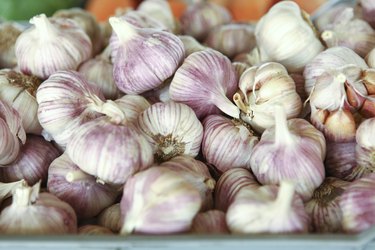A small amount of cold-smoked salmon or lox on a bagel with cream cheese, on top of sushi, or as a simple appetizer is what most people like. Lox is raw salmon that has been salt-cured, or brined. Cold-smoked salmon is brined salmon that is additionally smoked at low temperature.
Salmon is a nutritious, oily fish, but that doesnt mean eating smoked salmon everyday is good for you. Since lox and cold-smoked salmon are both eaten raw, they are examples of foods that can make you sick.
A 3-ounce serving of smoked salmon is a good source of protein, with 15. 5 grams, as well as rich in vitamin B12, with 2. 8 micrograms. This size serving also contains 384 milligrams of the vital long-chain omega-3 fatty acids DHA and EPA. The Academy of Nutrition and Dietetics says that you should eat 500 milligrams of these fatty acids every day. On the other hand, the Office of Disease Prevention and Health Promotion (ODPHP) says that eating about 8 ounces of different seafood every week gives you an average of 250 milligrams of EPA and DHA every day, which is linked to fewer heart deaths.
The fact that smoked salmon is oily might make you think it will make you gain weight, but USDA data is quite reassuring in this regard. A 3-ounce serving of baked salmon without fat has 136 calories, which is more than a 3-ounce serving of smoked salmon, which has 100 calories.
The American Heart Foundation says that salmon is one type of fish that is lower in mercury. However, smoked salmon has a lot of sodium (573 milligrams per 3 ounce serving), which is not a good thing. The FDA says that you shouldn’t eat more than 2,300 milligrams of sodium per day because too much can make you more likely to get high blood pressure.
Smoked salmon is a popular food enjoyed around the world. Also known as lox, cold-smoked salmon is a brined fish that has been smoked at low temperatures to impart flavor. But is this delicious delicacy actually carcinogenic and raising your risk of cancer?
There has been some concern that the processing methods used to create smoked fish may produce compounds that are harmful over time. However, the research is still unclear if smoked salmon and other similar smoked seafood products have the same cancer risks as processed meats like bacon or deli meats.
In this article we’ll explore the potential cancer risks of eating smoked salmon, lox and other smoked fish. We’ll also look at the possible dangers of foodborne illnesses, sodium content, and who may need to moderate their intake.
What Research Says About Smoked Fish and Cancer
Several major health organizations have looked at the potential link between eating smoked fish and cancer risk Here’s an overview of the current research
-
When it comes to cancer risk, the American Institute for Cancer Research (AICR) says that smoked fish is the same as processed meats. Recommends limiting intake.
-
The International Agency for Research on Cancer (IARC) of the World Health Organization has not specifically looked at smoked fish. States that processed meats are carcinogenic. More research needed on smoked fish.
-
National Cancer Institute: Not enough data available to make a firm conclusion due to low consumption rates of smoked fish in the United States.
-
A possible link has been found between salted and preserved fish and the risk of stomach cancer by the World Cancer Research Fund in a study. Unclear if this applies to smoked fish.
Smoking and Curing Methods – What’s the Cancer Risk?
What exactly is it about smoking and curing fish that can potentially lead to harmful effects? Here are a few theories on how these processing techniques could negatively impact health:
-
High heat: Smoking at certain high temperatures may produce carcinogenic compounds called polycyclic aromatic hydrocarbons (PAHs). However, cold-smoking techniques use lower temperatures.
-
Curing salts: Sodium nitrates added during curing may be converted into nitrosamines, which are carcinogenic compounds.
-
Salting and pickling: High sodium levels could potentially damage the stomach lining and lead to stomach cancer over time.
-
Combination of factors: The various chemicals added, high heat, and salt content may react to form carcinogenic compounds not found in unprocessed fish.
More research on exactly how these processing methods create cancer risk is still needed. But it does seem that the heating, curing, salting, and smoking of the fish may alter its molecular structure in concerning ways.
Other Potential Health Risks of Smoked Salmon
In addition to the potential cancer link, there are a few other health considerations to keep in mind if you frequently eat smoked salmon:
-
High sodium content: A 3 oz serving of smoked salmon contains over 500mg of sodium, which is nearly 25% of the recommended daily limit. Too much sodium can increase blood pressure.
-
Risk of foodborne illness: Cold smoked salmon is not cooked, so it can harbor bacteria like Listeria or parasites. This is especially dangerous for pregnant women, young children, older adults, and those with weakened immune systems.
-
Toxins: Fish can absorb toxins like PCBs and dioxins from the environment. The smoking process does not remove these compounds.
-
Allergies: People with fish allergies or sensitivities can still react to smoked salmon. Allergens may even become more concentrated during processing.
So along with the potential cancer risks, there are some other drawbacks to eating a lot of smoked fish. It’s best to consume in moderation as part of an overall healthy diet.
Who Should Be Especially Cautious About Smoked Salmon Intake?
While the cancer risk may not yet be clear, certain populations should still be careful with how much smoked salmon they eat:
-
Pregnant women: At risk for Listeria food poisoning, which can harm the fetus. Avoid cold smoked salmon unless it’s an ingredient in a cooked dish.
-
Young children: More susceptible to harmful bacteria that can lead to illness.
-
Older adults: Increased risk of infections from pathogens in raw seafood.
-
Those with weakened immune systems: More likely to get sick from bacteria or parasites in uncooked fish. Includes cancer patients receiving chemotherapy.
-
People with high blood pressure: Prone to the blood pressure-raising effects of the high sodium levels.
-
Individuals with existing cancer: Some organizations advise cancer patients to limit smoked foods along with processed meats until more is known about the risks.
So pregnant women, young children, older adults, those with compromised immune function, high blood pressure issues, and cancer patients may all want to carefully moderate their intake of smoked fish.
Tips to Enjoy Smoked Salmon More Safely
Instead of avoiding smoked salmon completely, there are some ways to incorporate it into your diet more safely:
-
Eat in moderation as part of an overall healthy and balanced diet. Don’t overindulge daily.
-
Look for low-sodium options to reduce the very high salt content.
-
Read labels and choose products without chemical preservatives like nitrites or nitrates.
-
Opt for cold-smoked varieties over hot-smoked. Lower temperature smoking reduces PAH formation.
-
Cook smoked salmon by adding to omelets, pasta, or casseroles to kill any bacteria present.
-
When serving raw, choose fresh, high-quality products and observe safe handling and storage.
-
Balance intake with plenty of fruits, vegetables, whole grains, lean proteins, and healthy fats from other sources like nuts, seeds, and olive oil.
By being a mindful consumer and following basic food safety practices, it’s certainly possible to enjoy smoked salmon and other smoked seafood responsibly.
The Takeaway: Enjoy Smoked Salmon in Moderation as Part of a Healthy Diet
So what should health-conscious seafood lovers make of all this? Based on the current research, here are some key tips:
-
The cancer risk from smoked fish is still unclear compared to processed meats. More studies are needed for definitive answers.
-
Pregnant women, children, older adults, and those with compromised immunity should take extra care with smoked fish intake.
-
In addition to cancer, smoked salmon can also be high in sodium, may harbor bacteria, and can contain environmental toxins.
-
Techniques like curing, smoking, salting, and heating alter fish at a molecular level in ways that may be harmful over time.
-
To be safe, limit intake of smoked seafood and enjoy as part of a varied diet. Look for lower sodium options when possible.
Smoked salmon, in moderation, can still be part of an overall healthy lifestyle. Use caution, handle with care, and balance intake with plenty of wholesome, nourishing foods for optimal well-being.
/grillsmokedsalmon-589decb25f9b58819c9ba4ec.jpg)
Raw Fish and Listeria
The Mayo Clinic says that cold smoked salmon and lox can be contaminated by Listeria bacteria, which can cause very serious illness in some people. Those at risk of succumbing to a listeria infection include pregnant people and people with a weakened immune system, such as those undergoing treatment for cancer. The Mayo Clinic warns that people in either of these categories should avoid refrigerated smoked seafood unless cooked in a casserole or other hot dish.
Listeria can grow in cold places, but it will grow more slowly if you keep your fridge at or below 40 degrees F, according to the FDA. It is important to keep cold-smoked salmon within its “Use By” dates and follow any other storage or use instructions on the package.
Smoked Fish Cancer Risk?
It hasn’t been talked about much whether smoked salmon and lox have the same cancer risks as smoked, cured, and salted red meats. However, the World Cancer Research Fund includes salted and dried fish that are commonly eaten in East Asia as “foods preserved by salting.” These foods have been linked to stomach cancer with “probable strong evidence.”



An October 2018 study in the Journal of Chemistry found that very few cold-smoked salmon samples had detectable levels of potentially carcinogenic polycyclic aromatic hydrocarbons (PAHs). Hot smoked salmon — where the smoking temperature is higher and the fish ends up with a flaky baked texture — was more likely to contain them, as were smaller smoked fish like smoked herring.
The Truth About How Smoked Salmon Is Made
FAQ
Are there carcinogens in smoked salmon?
Does smoked salmon count as processed meat?
How many times a week is it safe to eat smoked salmon?
Is smoked food carcinogenic?
Is smoked salmon a cancer risk?
As with meat products, salmon and other types of fish are often smoked or cured to enhance flavor and preservation. Lox, for instance, is salt-cured, or brined. Cold-smoked salmon is also brined but then smoked at a very low temperature. It is unclear why processing may pose a cancer risk, though salting could be one factor.
Is smoked salmon safe for kidneys?
Smoked salmon is safe for the kidneys, as long as it does not exceed the renal load, that is, the amount of recommended daily protein.
Does cold smoked salmon have a carcinogenic polycyclic aromatic hydrocarbon (PAH)?
An October 2018 study in the Journal of Chemistry found that very few cold-smoked salmon samples had detectable levels of potentially carcinogenic polycyclic aromatic hydrocarbons (PAHs).
Do smoked salmon and LOX have the same cancer risks?
Whether smoked salmon and lox have the the same cancer risks of smoked, cured and salted red meats hasn’t been much addressed.
